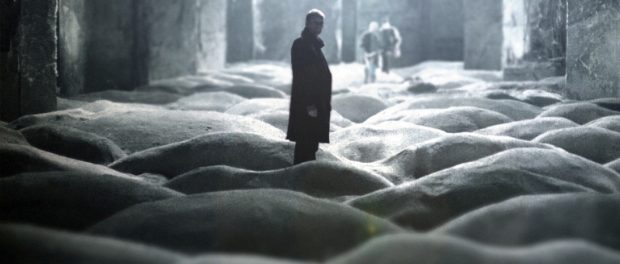Stalker: A Restored Vision Through Time
Andrei Tarkovsky’s work has huge influences from the time he was making his films. Born in the erstwhile Soviet Union, right when Eisenstein’s Battleship Potemkin was creating modern film structure and montage, Tarkovsky’s work would begin a few decades after the birth of Russian cinema. In addition to the politics of his time, his films were about the craft of filmmaking, the nuisance of style, structure, message and of course context. Stalker is actually a good example of how he framed and shot his films. Most of his shots are static, while others break rules sporadically, not for cinematic effect, but mostly to see how far Tarkovsky could push his boundaries.
Based on a Russian novel written in the 1970s, Stalker is one of his last films, and the final film produced in the USSR. The film follows three men who find themselves navigating ‘The Zone,’ which is this wasteland of sorts that leads to a central space, a ‘Room’ where anyone who enters would have all their dreams fulfilled.
The three men, the “Writer,” the “Professor,” and the “Stalker” enter the Zone, fending off a military blockade and riding a railway car that will hopefully lead them to the Room. The desolate and unproductive landscape turns and they find themselves in the middle of expansive foliage, where they debate the challenges of being able to create and discuss the existential questions of life and the living.
Stalker is not a conventional narrative and actually breaks our addiction to such structured narratives. It intends to immerse you into a repugnant landscape that is meant to lead us nowhere. After exploring the length of the film through the Zone, and confronting both emotional and physical challenges enroute, the three men finally get to the Room, where the Professor’s secret plan is disclosed. He carries with him a bomb, that he wishes to use to destroy the Room, should it fall into the hands of someone who would use its powers to get whatever they want and spread evil in the world. But the plan is never realized and the three sit outside the Room, exhausted and reconciled to the indeterminate end they seek.

Stalker.
The film then traces its way back to the original space where the three men met. The Stalker joins his wife and daughter, as they contemplate their next steps for an onward journey.
The unique world created by Tarkovsky allows the viewer to be contemplative, indulge in spiritual and existential reflections and at the same time debate the politics of that and our contemporary times. The close to three hours of run time of the film also allows the film to take its time and organically unfold before you, without attempting any specific disclosures.
Stalker is playing at Cinema du Parc until Monday, June 12.






